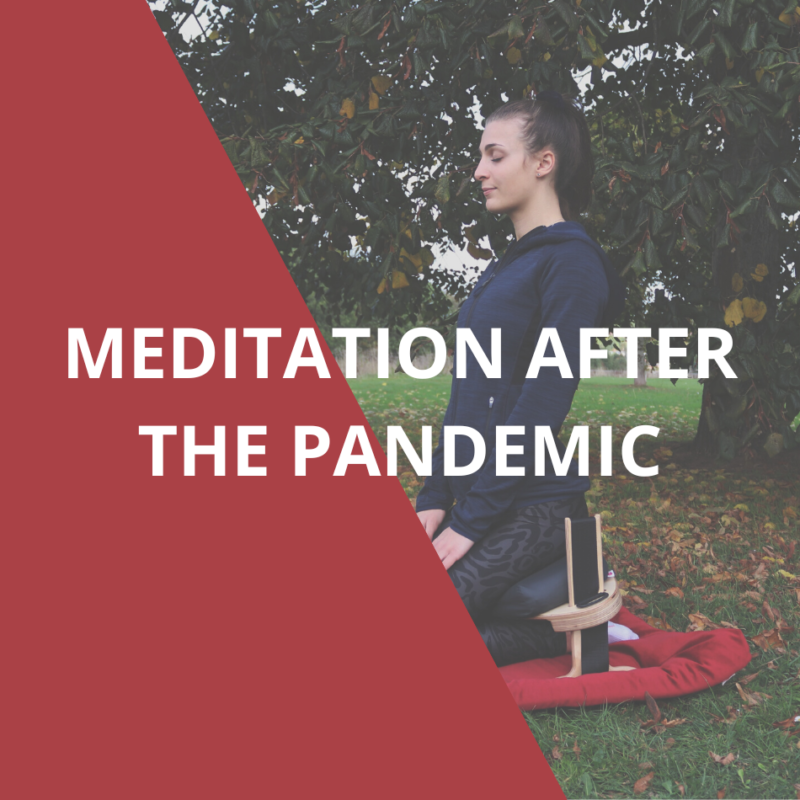The Kindseat Meditation Seat Posts
Meditation after the Pandemic
After enduring a global pandemic and over a year of hopping in and out of national lockdowns, many families across the UK have suffered immensely. The onslaught of coronavirus has seemed to exacerbate the seeming vulnerability and fragility of life, with many of us feeling distanced from loved ones. Regardless of your own experience with COVID-19, the negative mental health impacts of the pandemic are likely to be felt for far longer than the physical health consequences. Social distancing, physical isolation, and working from home will all have had huge impacts on individual’s wellbeing. The uncertainty and shutting down of normal life forced many to fear for their futures. Research found that depressive symptoms made people feel that their access to essential goods, access to care, and financial stability were being affected. The impact of the pandemic on the UK’s mental health cannot be more apparent.
New Attention for wellbeing and meditation
After a year of continuous challenges posed to physical, financial, and mental welfare, it is no wonder that increased attention is being paid to the benefits of meditation and mindfulness, as research suggests an introduction of mindfulness during the pandemic is a low-cost method of providing support for anxious and depressive emotions. Experts are encouraging the public to practice mindfulness and similar habits including meditation, to help combat some of lockdown’s prominent side effects including anxiety, loneliness, and isolation.
Why is Meditation so Beneficial During Times of Crisis?
The reason for meditation is to force the practitioner to focus on the present, on their breathing, letting all else fade away. Suzanne Westbrook, an internal medicine doctor at Harvard, defines it as a way of “noticing what happens moment to moment, the easy and the difficult, and the painful and the joyful. It’s about building a muscle to be present and awake in your life”. Coming out of the pandemic, meditation is a powerful tool to teach a person how to cope with their fears, learning to recognise the feeling and therefore not letting the emotion run out of control.
A study recently investigated the impact of mindfulness as factors that influence psychological distress in a pandemic, finding that reduced mindfulness in a person’s life was the most important predictor of psychological distress because it did not allow the person to effectively manage their stress. A similar study echoed these findings, asserting that mindfulness-based training can help to mitigate the harmful ramifications of coronavirus.
What is more, meditation has been proven by research to strengthen one’s immune system and decrease biological ageing, meaning it is perfect for combatting – or at least reducing – the most adverse effects of COVID-19. Supporting our physical strength is key, supplemented with psychological strengthening. Meditation can help teach you how to identify your fears and cope with them, especially critical in a crisis. As such, meditation can help prepare you for similar future situations, helping your immune system and creating better decision-making procedures.
Coming Out of the Pandemic:
Overall, coronavirus has changed our values, priorities, and the entire way we live. For many, lockdown introduced meditation into their lives, whether it was to focus on the self, incorporate mindfulness, still their inner fears, or merely as a coping mechanism. Whatever the reason, it is apparent the power of meditation’s healing and calming qualities.
Taking time to find a quiet spot outside with your Kindseat bench or Zabuton cushion whilst we gradually transition back to the world we knew before Covid will help keep you calm and collected. Even once the pandemic is more so in the background, incorporating meditation to your daily routine will do wonders for your mental and physical health.
If anything discussed in this article applies to you, or you feel that you need help, please reach out to:
Mental Health Helpline for Urgent Help – NHS (www.nhs.uk)
Hub of Hope – Mental Health Support Network provided by Chasing the Stigma

